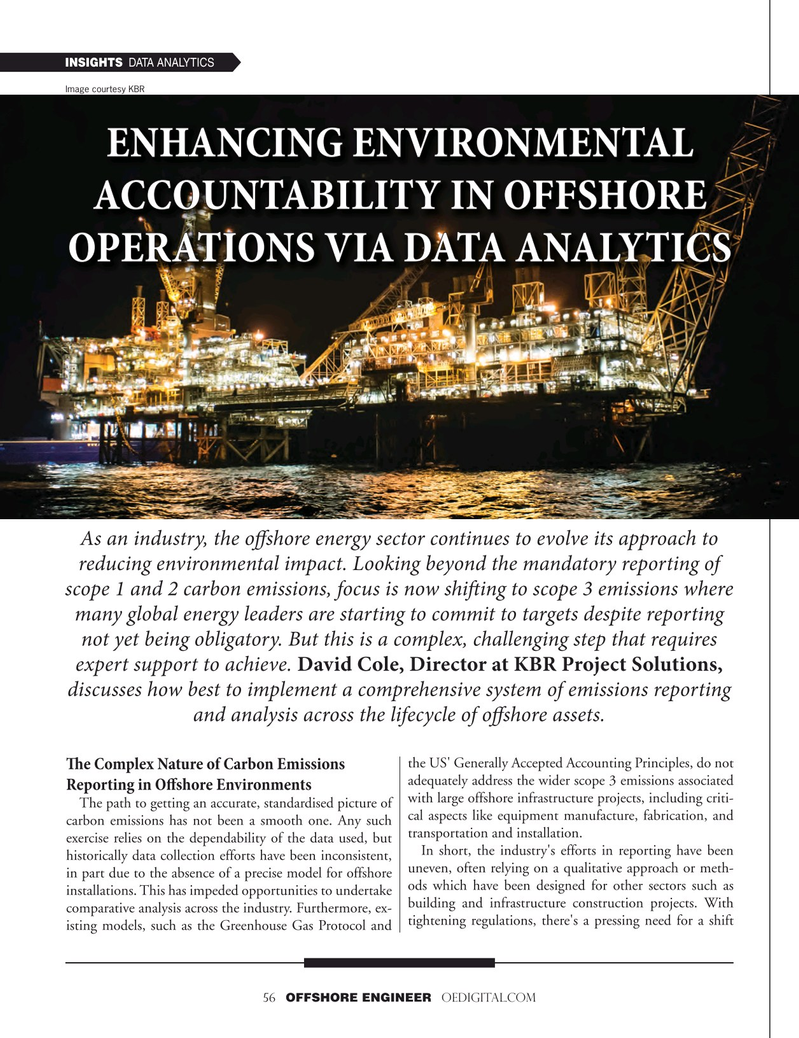
Page 56: of Offshore Engineer Magazine (Jan/Feb 2024)
Read this page in Pdf, Flash or Html5 edition of Jan/Feb 2024 Offshore Engineer Magazine
INSIGHTS DATA ANALYTICS
Image courtesy KBR
ENHANCING ENVIRONMENTAL
ACCOUNTABILITY IN OFFSHORE
OPERATIONS VIA DATA ANALYTICS
As an industry, the ofshore energy sector continues to evolve its approach to reducing environmental impact. Looking beyond the mandatory reporting of scope 1 and 2 carbon emissions, focus is now shifing to scope 3 emissions where many global energy leaders are starting to commit to targets despite reporting not yet being obligatory. But this is a complex, challenging step that requires expert support to achieve. David Cole, Director at KBR Project Solutions, discusses how best to implement a comprehensive system of emissions reporting and analysis across the lifecycle of ofshore assets.
the US' Generally Accepted Accounting Principles, do not
Te Complex Nature of Carbon Emissions adequately address the wider scope 3 emissions associated
Reporting in Ofshore Environments
The path to getting an accurate, standardised picture of with large offshore infrastructure projects, including criti- carbon emissions has not been a smooth one. Any such cal aspects like equipment manufacture, fabrication, and exercise relies on the dependability of the data used, but transportation and installation.
In short, the industry's efforts in reporting have been historically data collection efforts have been inconsistent, in part due to the absence of a precise model for offshore uneven, often relying on a qualitative approach or meth- installations. This has impeded opportunities to undertake ods which have been designed for other sectors such as building and infrastructure construction projects. With comparative analysis across the industry. Furthermore, ex- isting models, such as the Greenhouse Gas Protocol and tightening regulations, there's a pressing need for a shift 56 OFFSHORE ENGINEER OEDIGITAL.COM

 55
55

 57
57